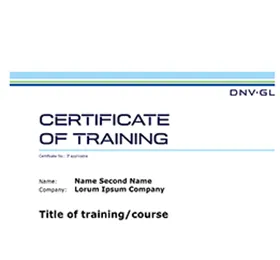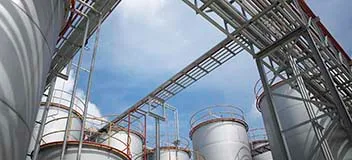TA-01 Taro training
Extensive guidance on how to use Taro to perform a range of analyses from a basic to a more advanced RAM study
Description
The course provides extensive guidance on how to use Taro to perform a range of analyses from a basic Reliability, Availability and Maintainability (RAM) study to a more comprehensive plant-wide life-cycle performance analysis. All the key aspects of typical downstream asset evaluation and optimization studies are covered.
Some of the topics included are:
- Overview of Taro modelling approach
- Modelling typical operational procedures for downstream assets such as tank level management, logistics operations, re-routing of production
- Construction of practical examples such as refinery, LNG terminal and petrochemical facility
- Interpretation of results produced
- Sensitivity analysis (what-if-scenarios) to evaluate alternative design configurations, operational strategy, maintenance philosophy
Learning objectives
The aim of the course is to review the main features and functionality available in Taro (refinery design). You will be required to practise and apply your new knowledge of the software through extensive exercises. Upon completion of this course you should be able to scope, create and run a RAM analysis, produce results and investigate their meaning.
Target group
Users who need to carry out or understand the output of RAM analysis and Asset Evaluation & Optimization Studies in the downstream and supply chain sector of the oil and gas and refining industries.
Description
The course provides extensive guidance on how to use Taro to perform a range of analyses from a basic Reliability, Availability and Maintainability (RAM) study to a more comprehensive plant-wide life-cycle performance analysis. All the key aspects of typical downstream asset evaluation and optimization studies are covered.
Some of the topics included are:
- Overview of Taro modelling approach
- Modelling typical operational procedures for downstream assets such as tank level management, logistics operations, re-routing of production
- Construction of practical examples such as refinery, LNG terminal and petrochemical facility
- Interpretation of results produced
- Sensitivity analysis (what-if-scenarios) to evaluate alternative design configurations, operational strategy, maintenance philosophy
Learning objectives
The aim of the course is to review the main features and functionality available in Taro (refinery design). You will be required to practise and apply your new knowledge of the software through extensive exercises. Upon completion of this course you should be able to scope, create and run a RAM analysis, produce results and investigate their meaning.
Target group
Users who need to carry out or understand the output of RAM analysis and Asset Evaluation & Optimization Studies in the downstream and supply chain sector of the oil and gas and refining industries.


